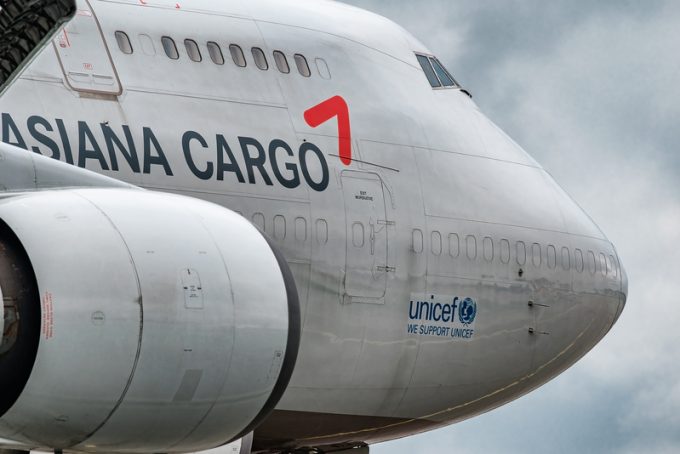HMM leads as South Korea embarks on state-backed box fleet expansion
HMM said today it would increase its box ship fleet to 130, with a combined ...

Asiana Airlines directors may have agreed to sell the embattled airline’s air freight business, to soothe its proposed band-aid merger with its larger peer, Korean Air Lines, but finding a buyer will not be easy.
On 1 November, a majority of Asiana’s directors agreed the sale of the debt-laden airline’s cargo business to persuade the EC to drop its opposition to its merger with KAL on competition grounds.
Asiana must find a compatriot taker for the business, which involves flying cargo to and from South Korea.
Five low-cost carriers, Air Incheon, Air Premia, Eastar Jet, T’way Air and Jeju Air, have been touted as possible buyers, but sceptics doubt any have the financial means to acquire a business valued at $520m, including debt.
Asiana incurred a cumulative net loss of $36.3m over the first nine months of this year, although this narrowed from the net loss in the year-ago period, as the Korean won strengthened against the US dollar. The red ink was attributed to a decline in the profitability of its cargo business and increased costs related to expanding international routes.
Air Incheon, which recorded a $13.9m net profit in 2022, had equity of $12.6m as of 31 December 2022; Air Premia had a second consecutive net loss of $38.5m in 2022, but its principals injected more capital to bring its equity up to $38.5m at 31 December 2022; Eastar Jet sustained a second consecutive net loss of $39.3m in 2022 and saw its equity deteriorate to a negative $36.8m; Jeju Air achieved aggregate net profit of $74.5m for M9 23, improving from a total net loss of $131.7m a year ago, and as of 30 September, Jeju Air had $238.4m of equity; and T’way Air had a cumulative net profit of $52.9m for M9 23, recovering from a $98.02m net loss a year ago. As of 30 September, its equity stood at $101m.
Reportedly, KAL, which submitted an amended remedial plan to the EC on 2 November, will transfer five aircraft and 100 pilots to T’way Air, along with passenger routes from South Korea to Frankfurt, Paris, Rome and Barcelona, to assuage the commission’s concerns of a monopoly on passenger services to Europe.
Endau Analytics’ founder and aviation analyst, Shukor Yusof, told The Loadstar finding a South Korean buyer for Asiana’s cargo unit would be tough. He said: “There aren’t that many potential takers with the financial ability to do that. As this is crucial to the KAL-Asiana merger, those involved will need to find a clever way to get around this while staying within the guidelines.”
Asiana’s 11 freighters have an average age of around 27 years and due for replacement, presenting another deterrent to possible bidders.
The carrier fell into financial difficulties after Covid-19 battered air travel in 2020, prompting the South Korean government to push for it to merge with KAL. However, antitrust concerns have held things up: Australia and Singapore have approved the merger, and besides the EC, Japan and the US are hesitating.
After Asiana’s board ratified divestment of the cargo unit, KAL agreed to buy KRW300bn ($220m) of convertible bonds issued by Asiana to provide financial support. South Korean ratings agencies, Moody’s affiliate Korea Investors Service (KIS), NICE Investors Service and Korea Ratings have all elevated KAL’s credit standing to A- after eight years, on recovering passenger traffic.
Even if KAL fails to acquire Asiana, the flagship airline is unlikely to be affected adversely. KIS explained: “As competition in the aviation industry increases, profitability may be limited, but KAL’s diversified portfolio and strong route competitiveness, as well as the financial burden caused by absorbing Asiana, are relieved.”
Comment on this article